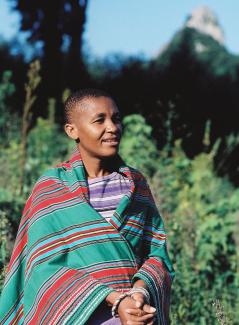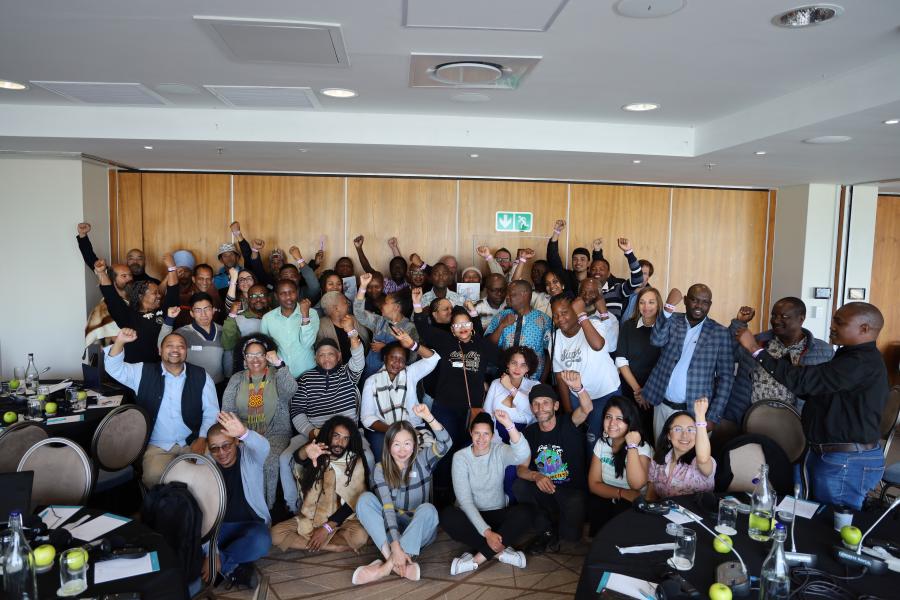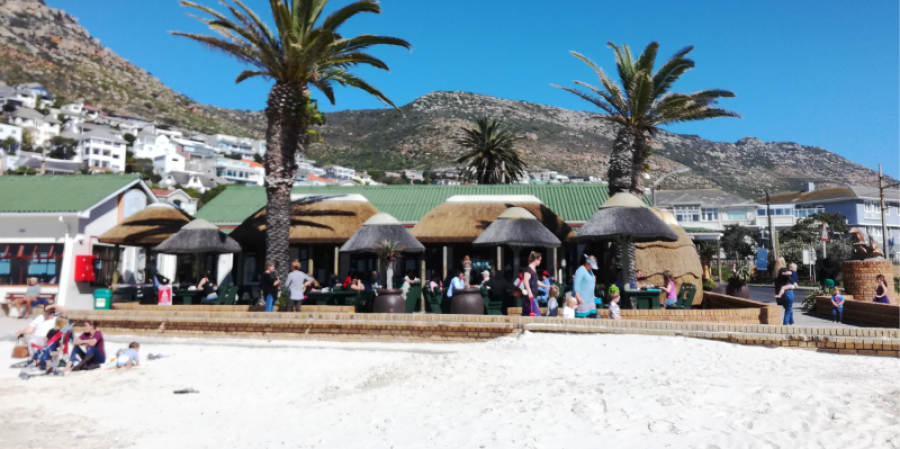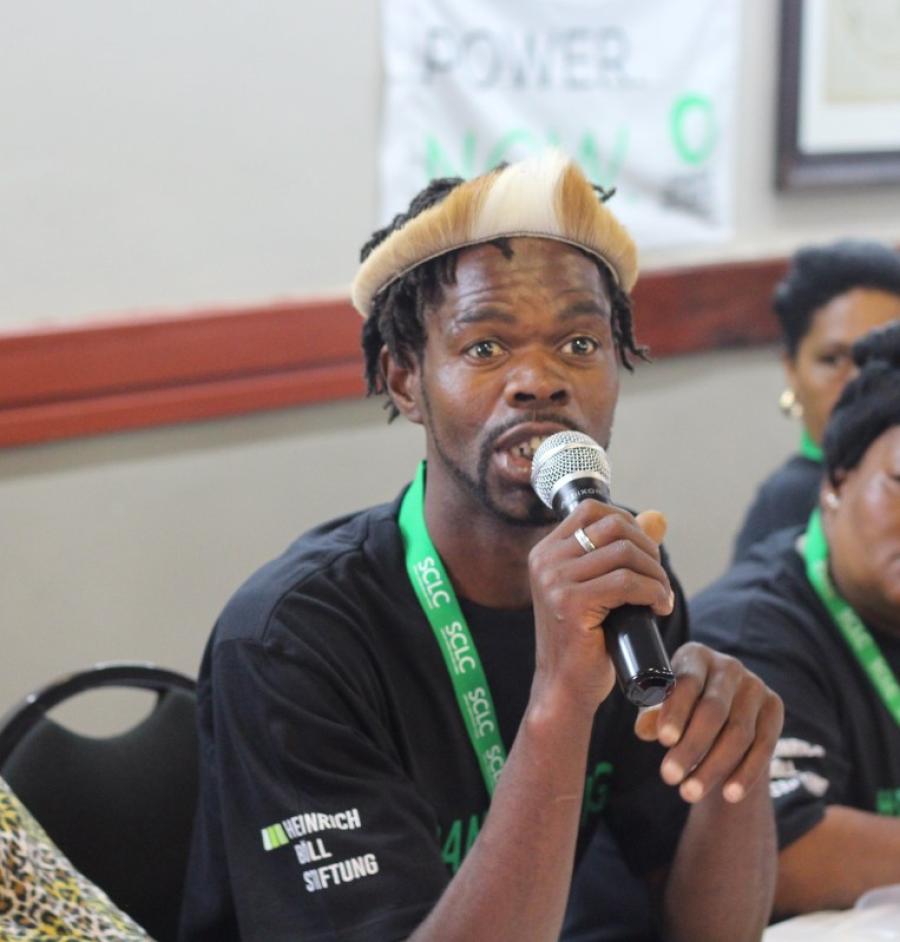
Indigenous women leaders gathered together for two weeks in New York to take part in a Global Leadership School for Indigenous Women and to participate in the UN Permanent Forum on Indigenous Issues. They traveled from regions of Latin America, North America, Asia, Africa, the Arctic, and the Pacific to take part in this leadership school run by the International Indigenous Women’s Forum (FIMI) from May 13–25, 2013. Lectures and discussions on topics ranging from technologies of activism to advocacy and negotiation techniques created a collective environment for these Indigenous women to grow and establish networks with other leaders worldwide.
The general objective of the leadership school is to strengthen capacities of Indigenous women leaders, particularly in the use of international instruments on human rights,Indigenous Peoples’ rights, and Indigenous women’s rights, as well as advocacy strategies to promote and sustain social change. The training sessions were conducted in three phases, beginning on a virtual platform from January to April, followed by a two-week intensive class concurrent with the forum in May, and concluding with a monitoring process (again through a virtual platform) to support the implementation of advocacy plans at the local, national, and regional level.
Mphatheleni Makaulule, representing the Venda people of the Limpopo province of South Africa, was among the leaders present. Toward the end of the session she was awarded a Global Leadership Award for her collective work with women and local communities: in 1999, Makaulule built the Luvhola Cultural Village with the help of community members, and in 2007 she founded the Mupo Foundation. The foundation works to foster food security, protect sacred natural lands, and revive cultural diversity, all while focusing on the advocacy and transmission of traditional Indigenous knowledge systems to women and the younger generations.
Mariana Lopez from FIMI commented on the inspiring legacy that Makaulele and others are creating: “We are celebrating Indigenous women who have implemented creative ways to address pressing social issues, demonstrating courage, creativity and vision. Indigenous women desire to no longer be viewed as vulnerable victims. They must be recognized as having huge capacity as catalysts of socio-cultural change,” Lopez said.
Makaulele explains that the word Mupo “describes the origin of creation, the creation of the whole Universe. When we look at nature, we see Mupo. When we look at the sky, we see Mupo. Mupo means all that is not man-made. Mupo gives everybody a space: men have their own space, children have their own space, women have their own space. Our role as women is to accompany all—from family, clan, community —to go back to that order. That is where we come to the name Makhadzi. Makhadzi is the name for VhaVenda women elders, but it literally means ‘the space of a woman’s role.’”
Makaulele and the Mupo Foundation have campaigns operating on many diverse fronts; Indigenous language revitalization efforts, eco-cultural mapmaking, protection of sacred territories, local seed cultivation and knowledge, and water advocacy amidst threats from mining industries make up the holistic approach. Currently, the Mupo Foundation is igniting a campaign against the Australian mining company CoAL of Africa, which plans to open a mine in the region.
For Makaulele, “The future is in the past. This future is not about the human children; it’s about the future children of all communities, from the insects up to the big animals.” With issues such as climate change and food security on her mind, Makaulele endorses the necessity of Indigenous knowledge systems and hopes to see them as part of the dialogue in every agenda.
Reflecting on what she learned during her time at the FIMI leadership school, Makaulele emphasized the role of leadership at home. “In our Indigenous knowledge system, everyone is a leader. We are leaders for the future generation. We are the leaders of the ancestral knowledge. We are the leaders of our ancestors to transfer this knowledge. And we are all leaders to protect mother earth. We cannot live without leadership. The knowledge which I have learned from here is a courage, is a motivation. In our work we do our work on the base of a dialogue. I’m going to sit, not getting tired, to involve our leaders, who are the chiefs, to involve our elders to do dialogue. I’m going to share this knowledge in the form of a dialogue. It is from the dialogue that the younger
generation also become the leaders.”
“I am very proud to be Indigenous,” Makaulele says. “It’s a big motivation because for me, my life is my Indigenous way. We [the Venda people] are the children of the Indigenous lens. Our life is Indigenous knowledge practice. I would like to say to all the women who are here, to carry this message outside to the women outside. We are the last generation to learn from our elders to protect the Indigenous forests, and this is the main root of our hope for the future. There is no longer time: we are the last generation on the edge of the elders who are going. We are going to become elders, and we women need to transfer this knowledge to our girls.” Directly addressing the girls in her culture, Makaulele says, “[You] need to create and take opportunity from your mothers and your elders to learn this knowledge, to get [it] into your veins like ourselves.”
For more information on Makaulele and Mupo, visit: mupofoundation.org. For more information on FIMI, visit: fimi-iiwf.org.



